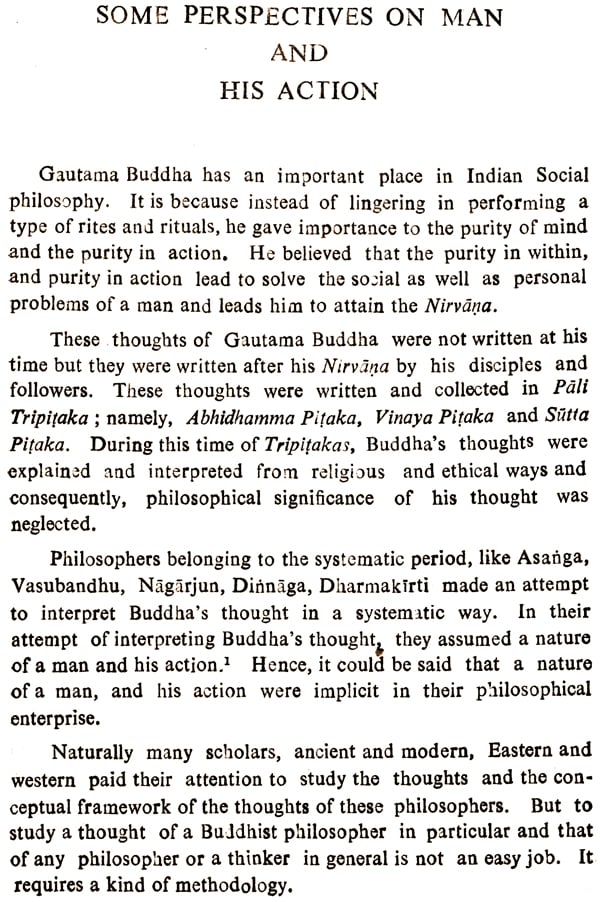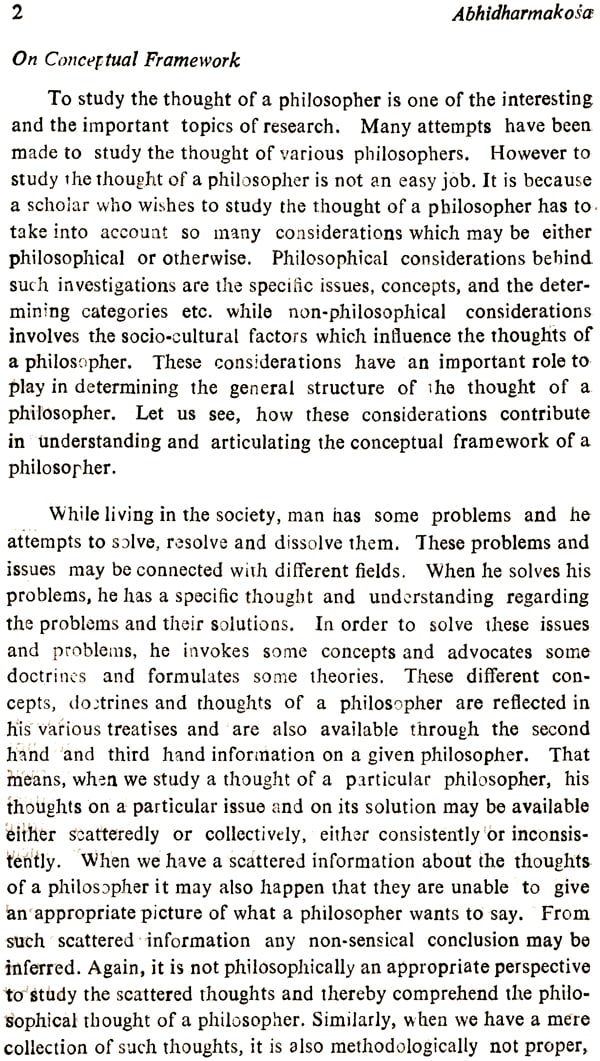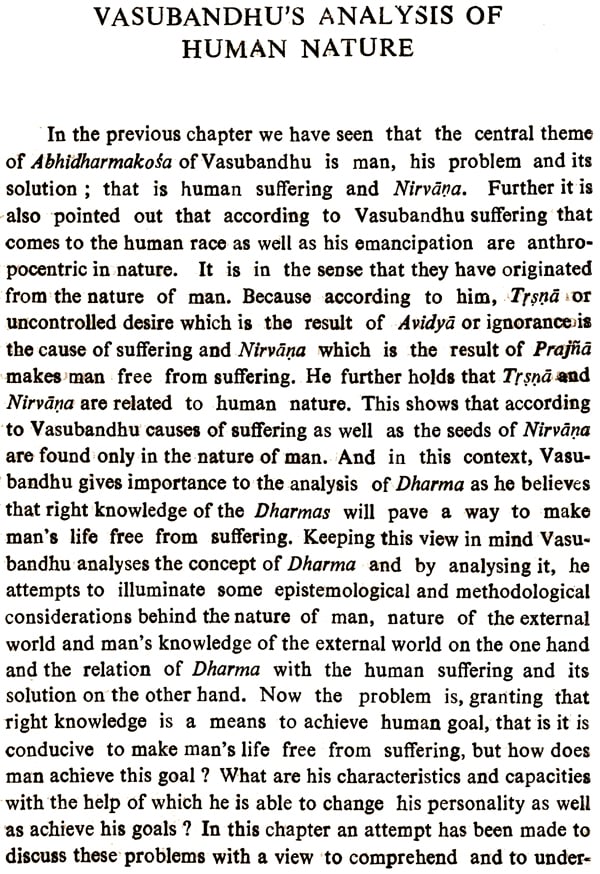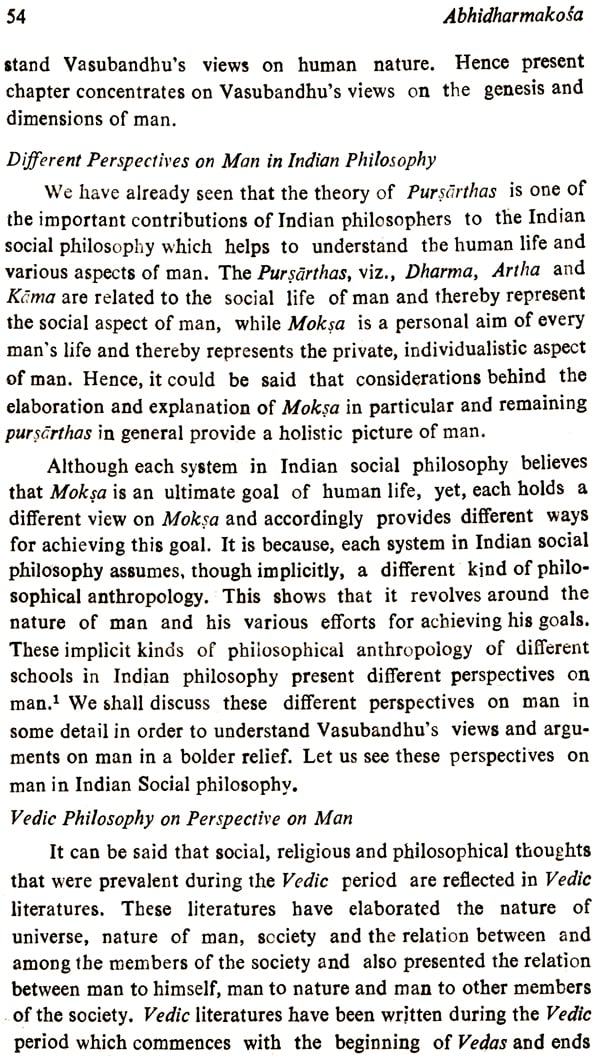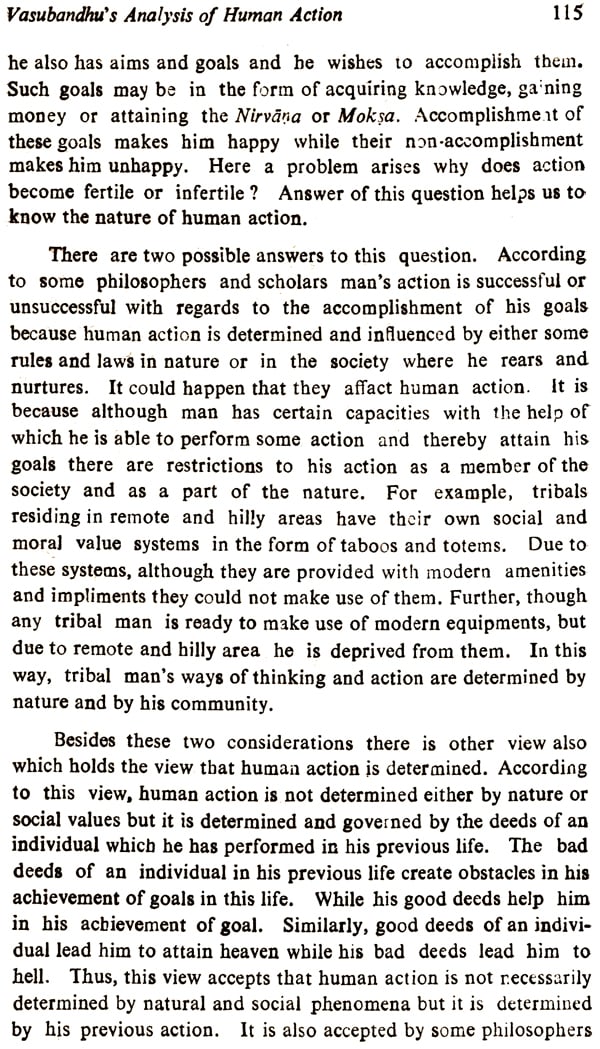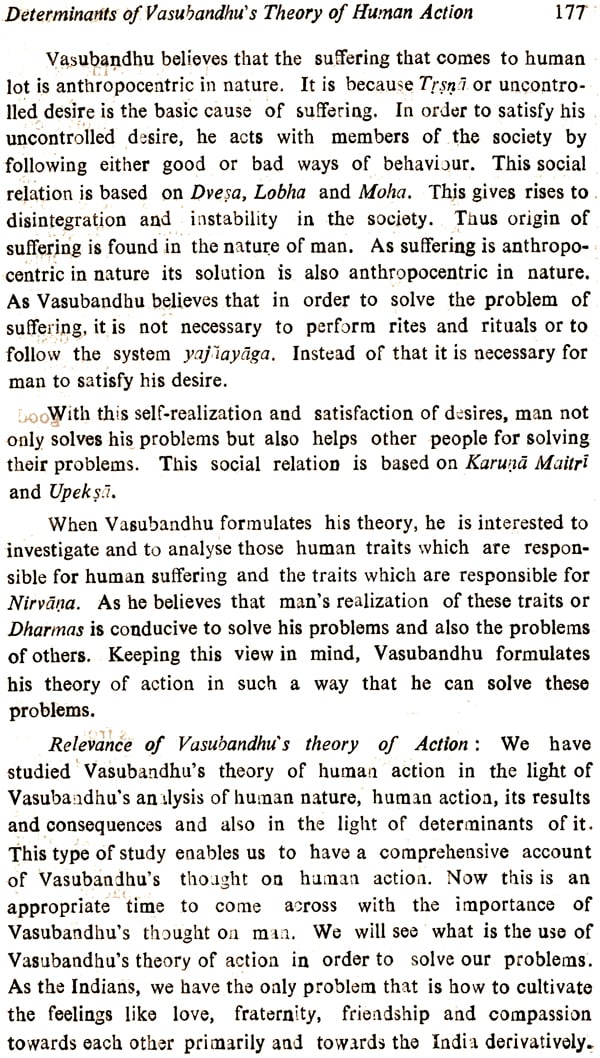
Abhidharmakosa - A Study With New Perspective (An Old and Rare Book)
Book Specification
| Item Code: | NAR594 |
| Author: | Lata Bapat |
| Publisher: | BHARATIYA VIDYA PRAKASHAN, VARANASI |
| Language: | English |
| Edition: | 1994 |
| ISBN: | 8121701120 |
| Pages: | 208 |
| Cover: | HARDCOVER |
| Other Details | 8.50 X 5.50 inch |
| Weight | 330 gm |
Book Description
The hook 'The study of Abhidharmakosa : with a new perspective' is an attempt to reconstruct a better understanding of Vasubandhu’s Abhidharmakosa in a novel way. It is a new and fresh perspective of looking at Abhidharmakosa.
The present work is completely relied upon Vasubandhu's principle work Abhidharmakosa. However his some other work, like, Karmasiddhi Prakarana, Vijnaptimatrata- Siddhi, Madhyanta Vibhaga Bhasya Tri-Svabhava Nirdesa, Pancaskandha Prakarana, pratityasomupadu-Dvibhanganirdesa etc. are also considered with a view to make emphatic. The author has gone into great details of vasuabandhu's treatment of human personality, human action and the nature of the society which according to vasubandhu is supposed to be formed out of the inter relation between human personality and human action with this, the author has made an atempt to excave the philosophical anthropology in Abhidharmakosa.
It is hoped that this book will be a good contribution to the field of Indian social philosophy in general and Buddhist social philosophy in particular.
When we glance at the history of Indian social philosophy, we find that many attempts have been made to solve the social' problems. Buddhism, one of the schools of Indian philosophy is not an exception to this. The Buddha, the founder of this school, has also discussed the social problems and has made an attempt to solve them. Injustice, inequality, corruption and exploitation were some of the social problems which were prevalent at the time of the Buddha. He realised that the particular type of social structure which was prevalent at his time was responsible for such type of social problems. Hence, he believed that it was necessary to bring about the social change and further he also believed that the human action alone could make such change possible.
According to the Buddha, the, social suffering is a result of the human nature on the one hand and the human action on the other hand. A man, while living in the society is related with the other members of the society by the social norms, institutions etc. The social relation is also based on and determined by the man's nature. There are basically two types of man; namely, a man who has Trrnei and a man who is without Tmei. A man having Trsna may use or misuse the other members of the society in order to satisfy his desires. This type of social relation is determined by the egocentric nature of man. This type of man does not take care of other members of the society. Consequently, there is a disorder and chaos in the society. On the contrary a man without having Trsoei does not use or misuse other members of the society. His relation with other members of the society is determined by a love, compassion.
The Buddha believed that the discipline of mind makes man free from Trirla and it is the only way of solving these problems because such discipline is reflected in man's thought, action and fellowship.
Thus, according to the Buddha, human nature causes social suffering and it can also solve human problems.
In this way, the nature of man and his action have an important role to play in solving the human problems.
This thought of Buddha is spread all over Pali Tripitakas. In these Tripitakas, there is a discussion on the caste system, four castes and their ways of conduct. However in Pali Tripitakas, the Buddha's thoughts are explained and interpreted with regards to the society. They are not discussed in the light of human nature and his capacities.
Thus it was perhaps the need of that time to explicate and interpret the Buddha's social and ethical thoughts in a proper way.
Buddhist philosophers belonging to the systematic period took a step in that direction. They have made an attempt to reconcile the metaphysical and social thoughts and to give a wider horizon to the Buddha's thoughts. Asaiga, Vasubandhu, Nagarjuna, Dhin5ga, Dharmalarti are some of them. They have tried to interpret the Buddha's thoughts in a systematic way. In their attempt of interpreting the Buddha's thought they assumed a kind of human nature and human action. Hence, it could be said that there is a consideration of philosophical anthropology which is implicit in their philosophical enterprise.
Many modern and ancient, Eastern and Western scholars have been attracted by these philosophers and have paid their attention to study these philosophers with a view to capture the kernel and central points of their philosophical enterprise. While studying these Philosophers, these scholars have compared the philosophy of these philosophers with the philosophy of Western philosophers. After finding some similarities and dissimilarities between the thoughts of these philosophers, they labelled the philosophic thoughts of Buddhist philosophers as idealism, nominalise etc. However, while studying the thoughts of these philosophers, they forgot to consider the nature of man which is implicit in the thoughts of Buddhist philosophers.
**Contents and Sample Pages**

